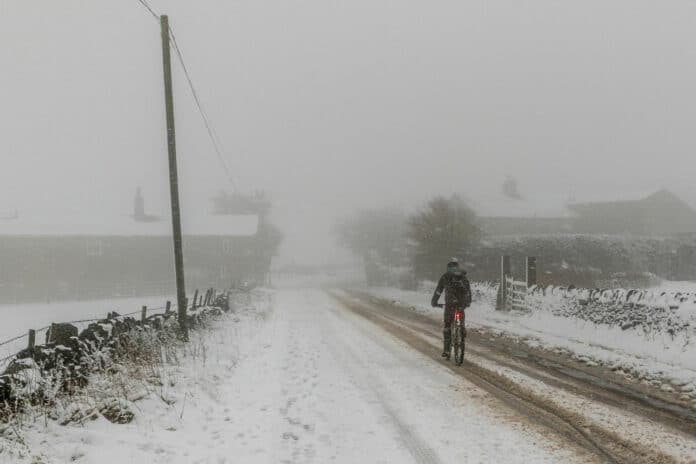A study of over 60,000 adults in the United States treated for high blood pressure between 2018 and 2023 showed that their top-number blood pressure (called systolic) went up slightly in winter compared to summer. This study looked at health records from six different healthcare centers in the southeast and midwestern parts of the United States.
On average, the researchers found that people’s systolic blood pressure increased by around 1.7 mm Hg during winter compared to summer. They also noticed that fewer people had their blood pressure under control in the winter – about 5% less than in the summer.
A new study from Boston found that blood pressure in people with hypertension increases a bit in the winter, and it’s harder to control during outpatient visits in winter, too. This study was presented at a big conference about high blood pressure and its connections to heart and kidney problems, stroke, obesity, and genes.
The American Heart Association says that almost half of adults in the U.S. have high blood pressure. Past research showed that blood pressure changes with the seasons, especially the top number (systolic). This study aimed to see if it’s tougher to control blood pressure in winter, which they defined as keeping it below 140/90 mm Hg in people with hypertension.
Lead study author Robert B. Barrett, a software engineer at the American Medical Association in Greenville, South Carolina, said, “Despite the minor degree of systolic blood pressure variation in comparison to previous studies on seasonality in blood pressure, we were surprised to observe a significant degree of change in blood pressure control between winter and summer months.”
“Individuals with hypertension or values near the range of hypertension may benefit from periodic blood pressure monitoring and improvements in physical activity and nutritional patterns during winter months to offset adverse effects from seasonal blood pressure changes.” the author added.
The researchers examined the medical records of 60,676 adults with high blood pressure. These people were treated between July 2018 and June 2023 at six different healthcare centers in the Southeast and Midwest of the United States. They all continued taking the same high blood pressure medicines they were initially prescribed.
They checked the blood pressure readings in different seasons, comparing winter (December to February) with summer (June to August). The average age of the participants was 62, with most being white (52.3%) and female (59.7%).
The study found that, on average, people’s top-number blood pressure (systolic) went up by about 1.7 mm Hg in winter compared to summer. Also, fewer people had their blood pressure under control in the winter – about 5% less. In the future, they might study how heart disease and deaths relate to the seasons.
However, it’s essential to know that this study had some limitations. They couldn’t access all the health information for each person and only used data from the healthcare center where the person was treated.
In 2017, the American Heart Association (AHA) defined high blood pressure as having numbers of 130/80 mm Hg or higher. However, this study used a stricter definition, considering numbers of 140/90 mm Hg or higher as high blood pressure.
The American Medical Association funded the study.
These findings suggest that colder weather may present challenges in managing and controlling high blood pressure. Healthcare providers and patients must be aware of potential seasonal variations in blood pressure and adapt treatment plans accordingly. Further research may explore the impact of these variations on heart health and overall well-being.
Journal Reference:
- Paul K. Whelton, Robert M. Carey et al., 2017 ACC/AHA/AAPA/ABC/ACPM/AGS/APhA/ASH/ASPC/NMA/PCNA Guideline for the Prevention, Detection, Evaluation, and Management of High Blood Pressure in Adults: A Report of the American College of Cardiology/American Heart Association Task Force on Clinical Practice Guidelines. Hypertension. DOI: 10.1161/HYP.0000000000000065.
